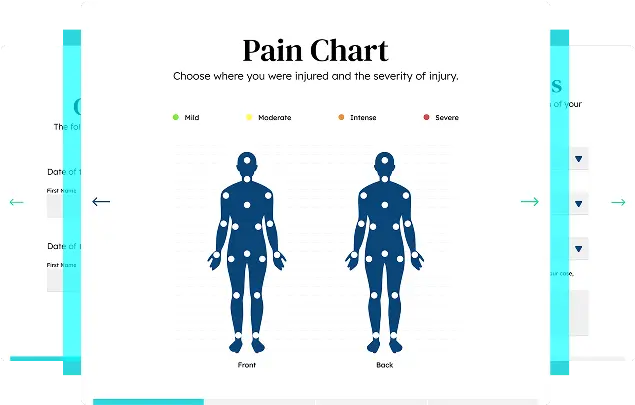Boston Scaffolding Accident Lawyer
Scaffolding is a fixture on most construction sites in Boston. These elevated platforms provide fixed and safer access than a ladder. But scaffolds are still temporary pieces of equipment that can be moved, disassembled, and reassembled. If not put together properly, they can fail. The Occupational Safety and Health Administration reports more than 4,500 construction workers are injured each year as a result of scaffolding accidents.
Get Free Advice About The Compensation You Deserve
Home » Boston Personal Injury Lawyer » Boston Workers’ Compensation Attorney » Boston Scaffolding Accident Lawyer
Reviewed by: Christopher DiBella
April 10, 2025
Did You Get Hurt On or Around a Scaffold in Boston?
If you or a loved one has been injured in a scaffolding accident, DiBella Law Injury and Accident Lawyers, can investigate the case and see who’s responsible for paying your bills. Call (617) 663-0665 to schedule a free consultation today with our skilled Boston personal injury lawyers.
We’ve offered crucial support and guidance to individuals who have suffered injuries, ensuring their financial and emotional well-being.
Types of Scaffolding
There are three main types of scaffolding used on construction sites and in regular maintenance of high-rise buildings. Each one serves a slightly different purpose and also poses different risks.
- Supported scaffolding is made of multiple platforms held together by large poles, frames, and outriggers. These provide support for the loads on the scaffolding. Some of these units can also be constructed on a base with locking wheels for greater mobility. While the wheels make the unit more mobile, they also increase the risk of unexpected movement and accidents.
- Suspended scaffolding is supported from above by ropes, wires, or chains. These units are less stable than supported scaffolding. In addition, the support ropes, wires, or chains are subject to wear and tear, which can cause a failure. These units are commonly used by window cleaners and workers on towers and bridges.
- Mechanical scaffolding is any machine, such as a cherry picker or scissor lift, that elevates a platform. These units are mobile and can be mounted on a truck or trailer. The danger here is overloading the platform or over-extending the boom, which can cause the machine to tip over. Also, an inexperienced operator can drop the lift too quickly, injuring workers on or underneath it.
Any worker who is using scaffolding should be trained on the necessary safety precautions to take and how to maneuver the apparatus.
Get immediate case evaluation with no cost or obligation to you in less than 5 minutes.

What Are Some Causes of Scaffolding Accidents?
There can be multiple factors involved in a scaffolding failure, including:
- Scaffolding that was improperly assembled
- Scaffolding that was poorly designed or had manufacturing defects
- Support failure, when the brackets or boards collapse or buckle
- Old scaffolding that is damaged or worn and should have been replaced
- Inadequate or damaged safety equipment, like an unsecured personal fall arrest system (PFAS)
- Wet, oily, or slippery work surfaces
As one of Boston’s premier personal injury firms, DiBella Law Injury and Accident Lawyers, knows all too well the life-altering injuries that can result from a scaffolding accident. The majority of these injuries come from a worker falling or an object falling on a worker down below. And because many scaffolding structures are metal, electrocution is also a danger. Scaffold workers can end up with:
- Broken bones
- Soft tissue injuries, such as muscle, ligament, and tendon damage
- Spinal cord injuries
- Ruptured organs and internal bleeding
- Brain injuries, from mild concussions to traumatic brain injuries
Injuries you suffer while doing your job are usually handed through workers’ compensation, but if another party was to blame for the incident, you may be able to file a lawsuit against them, too. If you were just walking by a scaffold as a pedestrian and it collapsed or dropped something on you, you certainly have the right to be compensated for your injuries.
The scaffolding manufacturer, the owner of the construction site, the company that rented the scaffolding, or the team that assembled the scaffold may be to blame. A single call to DiBella Law Injury and Accident Lawyers, at (617) 663-0665 will schedule a free consultation at our Boston location to discuss potential compensation for your injuries, lost wages, and even damage to your future earning potential. Call today to learn how we can work with you to protect your rights and your financial future.
